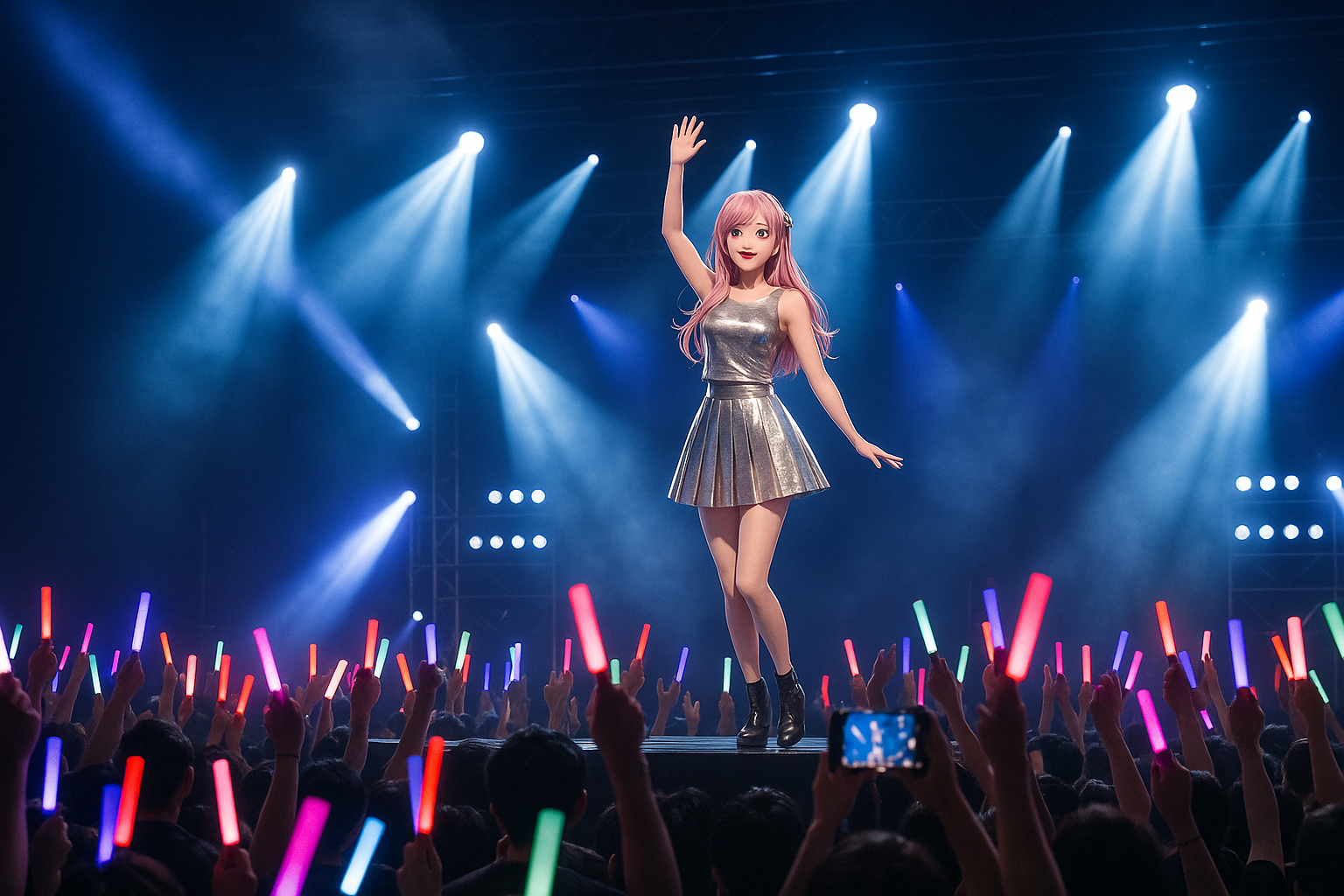
AI-Generated Pop Stars Are Now Performing Live – And People Are Cheering
🎤 The Concert Was Loud. The Singer Wasn't Real.
Tokyo just hosted one of the loudest concerts of the summer — lights, screams, encore chants — the full fanfare. But here’s the twist: the main pop star, Luna AI, isn’t a human being. She's a completely artificial artist, generated by a company called VibeTech, and trained on the vocal patterns of over 5,000 singers. Her face is synthetic. Her voice? Pure algorithm. Her dance moves? Flawlessly choreographed by motion-capture models.
And yet, the stadium was full. Fans held up light sticks. Merchandise booths sold holographic posters. People cried during the ballads.
🤯 A New Kind of Celebrity
This isn't just a Japanese thing anymore. AI-generated influencers, models, and now pop stars are making their way into mainstream media across the globe. Luna AI has over 12 million followers across platforms and recently dropped a music video that got 100 million views in 4 days. She’s signed brand deals, has a custom skincare line (which she obviously doesn't use), and somehow managed to get nominated for a music award.
How? Because it turns out — the audience doesn’t always care if you're real. They care if you feel real.
🧠 But Who’s Really Behind the Mic?
While the face and sound are synthetic, there’s still a small army behind Luna AI. Songwriters, designers, AI engineers, choreographers — and, of course, a PR team working 24/7. But the performer herself never needs rest, never has a scandal, never goes off-key. No bad hair days. No aging. Just algorithmic perfection.
🎟️ Should We Be Excited… or Scared?
Some people think this is the future of entertainment. Others are terrified. “It’s like Black Mirror, but with backup dancers,” one fan commented. “She looks more real than me after three cups of coffee,” another joked. But for real musicians, this raises uncomfortable questions. If companies can train an AI to mimic Mariah Carey or The Weeknd, what happens to actual artists?
It also opens up legal and ethical gray zones. Can you copyright a voice if the singer doesn’t exist? Who gets the Grammy — the dev who wrote the AI code, or the voice model who trained it?
🔮 What’s Next?
There are already rumors that Netflix is working on a full AI-generated drama series — actors, script, background score — all artificial. And if AI singers can sell out a stadium, who's to say they can't run for mayor next?
Whether you're cheering or cringing, one thing's clear: AI isn’t just changing how we work — it’s remixing what it means to be a star. The line between "real" and "digital" is not just blurry anymore. It’s sparkling under stage lights.
And while Luna AI can’t catch a cold or forget her lyrics, she might just be the beginning of a whole new genre: synthetic stardom.
💬 Final Mic Drop
So the next time someone tells you pop music is fake — they might be more right than they know. 🤖🎶
📬 Stay Updated!
Subscribe to receive the latest embedded & RTOS blog updates in your inbox.